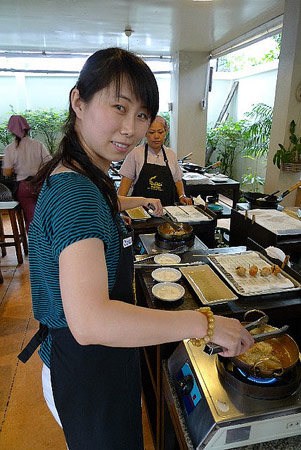Life Stages: Work and Professional Life
Most Thais finish high school before starting to work, and many go on to higher education, so people start to work when they’re in their late teens or early 20s. Well-educated Thais can choose a career and change jobs at will. Wealthy families often use social connections to obtain the best jobs, but prestigious jobs can also be earned by working for them. Rural Thais are more likely to do the same work as their parents and keep the same job for life, while urban, educated Thais have more mobility.
Thailand’s unemployment rate is relatively low, and most Thais can find suitable employment. In urban areas, offices are usually open from 8 or 8:30 a.m. to 4:30 or 5 p.m. and may close for about an hour at lunchtime. Shopkeepers often work until late in the evening. In rural areas, many people farm or fish for a living, in which case they may work irregular hours and sometimes for long hours at a stretch. Outside of Thailand’s major cities, a rest period in the hottest part of the afternoon is common.
Women in the Workforce
Women have equal access to higher education, constitute about half of the labor force, hold an increasing share of professional positions, and manage their own businesses. However, they rarely receive equal pay for doing the same work as men, and often have difficulty being promoted to a position of authority. Female professionals are generally respected, though women are concentrated in traditionally feminine jobs.
Thai women are entitled to maternity leave when they have a baby. Most working women rely on relatives or public or private day care centers to look after their children when they work. Wealthy families may employ a maid or a nanny.
Retirement
The statutory retirement age in Thailand is 55 years for both men and women. In rural areas, though, people may work until they are much older.
Copyright © 1993—2025 World Trade Press. All rights reserved.

 Thailand
Thailand 